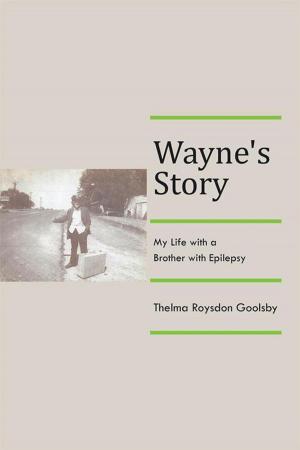Russell Means
The European Ancestry of a Militant Indian
Nonfiction, History, Americas, Native American| Author: | Helene E. Hagan | ISBN: | 9781984547705 |
| Publisher: | Xlibris US | Publication: | August 20, 2018 |
| Imprint: | Xlibris US | Language: | English |
| Author: | Helene E. Hagan |
| ISBN: | 9781984547705 |
| Publisher: | Xlibris US |
| Publication: | August 20, 2018 |
| Imprint: | Xlibris US |
| Language: | English |
This book examines the origin of many Plains Indian families, which began with the union of French trappers and traders with young Indian women in the early days of contact between Europeans and American Indians of the Dakota territory and the Sioux Indian territory of Nebraska. The famous Indian activist Russell Means, who made a name for himself through the activities of the American Indian Movement, the 1973 occupation of the Village of Wounded Knee, an unsuccessful political life, and a more successful Hollywood movie career, is at the core of the book. Though he proclaimed he was an Oglala Lakota patriot, Russell Means was in reality a European descendant of mostly French-Indian intermarriages on both paternal and maternal sides of his family. Indeed, he was more French than Indian, as documented in the carefully researched genealogy presented by French Moroccan anthropologist Hlne E. Hagan. The genealogy presented in this book dispels the fictitious claims advanced by Russell C. Means about his fathers and mothers family surnames in the autobiographical account he wrote with the help of independent author Marvin J. Wolf, Where White Men Fear to Tread (St. Martins Press, 1996). The book also addresses the unfortunate use of fictitious material attributed to Chief Seattle for the publication of a small book purportedly on ancestral Indian spirituality, If Youve Forgotten the Names of the Clouds, You Lost Your Way, published under his name shortly before he succumbed to a fatal cancer in 2012. In addition, the author evokes her fieldwork among the Oglala Lakota people of Pine Ridge Indian Reservation in the 1980s, the research she conducted with traditional elders as a volunteer with the archives of the Oglala Lakota College in her reservation-wide photo project covering years 1890 to World War II of the history of Pine Ridge families and her involvement with the Yellow Thunder Camp in the Black Hills of South Dakota. The last part of the book describes her later collaboration with the American Indian activist for the Public Access Television series of The Russell Means Show, which she conceived and produced in Los Angeles from 1999 to 2003.
This book examines the origin of many Plains Indian families, which began with the union of French trappers and traders with young Indian women in the early days of contact between Europeans and American Indians of the Dakota territory and the Sioux Indian territory of Nebraska. The famous Indian activist Russell Means, who made a name for himself through the activities of the American Indian Movement, the 1973 occupation of the Village of Wounded Knee, an unsuccessful political life, and a more successful Hollywood movie career, is at the core of the book. Though he proclaimed he was an Oglala Lakota patriot, Russell Means was in reality a European descendant of mostly French-Indian intermarriages on both paternal and maternal sides of his family. Indeed, he was more French than Indian, as documented in the carefully researched genealogy presented by French Moroccan anthropologist Hlne E. Hagan. The genealogy presented in this book dispels the fictitious claims advanced by Russell C. Means about his fathers and mothers family surnames in the autobiographical account he wrote with the help of independent author Marvin J. Wolf, Where White Men Fear to Tread (St. Martins Press, 1996). The book also addresses the unfortunate use of fictitious material attributed to Chief Seattle for the publication of a small book purportedly on ancestral Indian spirituality, If Youve Forgotten the Names of the Clouds, You Lost Your Way, published under his name shortly before he succumbed to a fatal cancer in 2012. In addition, the author evokes her fieldwork among the Oglala Lakota people of Pine Ridge Indian Reservation in the 1980s, the research she conducted with traditional elders as a volunteer with the archives of the Oglala Lakota College in her reservation-wide photo project covering years 1890 to World War II of the history of Pine Ridge families and her involvement with the Yellow Thunder Camp in the Black Hills of South Dakota. The last part of the book describes her later collaboration with the American Indian activist for the Public Access Television series of The Russell Means Show, which she conceived and produced in Los Angeles from 1999 to 2003.















